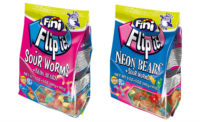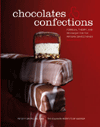Chinese candy manufacturer Amos Sweets shares experience with coronavirus
Amos Sweets CEO Amos Ma discusses effects on business, helpful protocols.

As the spread of coronavirus and COVID-19 halts or transforms production at U.S. manufacturing facilities, producers in China are beginning to resume operations as the number of new non-imported cases decline and quarantine restrictions loosen.
However, these manufacturers, including Shenzhen-based Amos Sweets, face additional challenges, including changes in demand from consumers and international business partners, increased difficulty in communication, and the cancellation and postponement of industry events.
Amos Ma, CEO of Amos Sweets, discusses the company’s experience with coronavirus, from the beginning of the outbreak to his hopes for the future.
CI: How would you describe the coronavirus outbreak in and around Shenzhen?
AM: Fortunately, as the third largest economic city and largest export city in China, Shenzhen has a strong, reliable and modern healthcare system, especially in how it’s managed by the local government. The coronavirus has been controlled really quite well.
Though Shenzhen is also one of biggest industrial cities and has the greatest number of migrant workers, it was a large and unprecedented challenge to contain the outbreak of the virus immediately after Chinese New Year, a period where millions of the people are coming back to work from all over China. At one point there were 425 confirmed cases, but thankfully 403 have recovered and already left hospital.
In the last few days, there have been zero confirmed cases. Most offices and workplaces resumed work two weeks ago and as a result traffic jams are back to normal! But schools haven’t yet started to open.
So, China is beginning to see light at the end of the tunnel, but unfortunately the rest of the world is facing huge challenges, and Shenzhen is met with a new headache of screening and containing imported cases of the virus from Europe and other countries. Now, customs and immigration have implemented rather strict checks and examinations at its borders.
CI: When did Amos Sweets begin experiencing the effects of the coronavirus, if any?
AM: We were affected by the coronavirus immediately after the New Year holidays. We planned to attend ISM in Cologne at the end of January, and we felt a little anxious if we went out traveling for such a long time with too many people. So we cut down the team traveling to the show, and eventually nine attended. Fortunately, as the leading global supplier of innovative candy, we were delighted at the attendance to our booth.
CI: Has the coronavirus outbreak affected production for Amos Sweets? If so, how?
AM: Yes, for sure. As you may know, the Chinese government extended the Chinese New Year holidays. In total, there were more than 15 days of holiday this year, which has never happened before, so we could not resume work and production as smoothly as previous years.
There were strict policies on controlling the outbreak and the flow of people and industry; in some places the roads were even blocked to encourage this quarantine. Even though we were one of the earliest companies to return to work, not all of our staff could come back to Shenzhen from their home towns. So, there was almost one full month of disruption where our factories could not produce.
And because of this outbreak, the whole economy and, especially consumption of candy, was hit a great deal, and as a result we are facing real challenges of survival. But we still believe in our value and our mission as a company to be the “Sweet Ambassador to the World.” We deliver our candy to the world, and we also deliver our love to the world. AMOS means ‘A Moment of Sharing.’ So, even though we are going through a rough patch, we stay true to our company values and we donated 300,000 RMB ($42, 282) worth of nutritional products (Active Probiotic Gummies and Vitamin C Effervescent Tablets) from our emerging brand, Biobor, to hospitals in Wuhan.
We do not foresee any delays to international supply. Our production is up and running, and we’re still on track insofar as we see no obstacles from our end. However, due to the outbreak in Europe and now the U.S., we are concerned that customers may experience delays when shipments arrive at customs.
CI: Has the coronavirus outbreak affected Amos Sweets’ employees? If so, how?
AM: Yes, as I already said, the workers couldn’t come back from their home towns. Even as of today, there are still several employees from Hubei province that are still isolated, unable to return to normality.
Our employees proposed to reduce their salaries for two months to lessen the financial strain on the business in the wake of the outbreak, which makes me very proud and impressed to have such a great team. It was rejected. I appreciated it very much, but I don’t want our employees to lose out, especially in these uncertain times.
As a company, we are still facing the challenge of survival as the market in China is recovering all too slowly, and internationally tough times are still ahead. Right now, it is the most difficult time; every day we’re thinking how to best serve our customers, how to get more income from online and offline, how to save costs and improve the efficiency of the organization. So we need all employees to work harder together to overcome the biggest challenges we’ve ever faced.
CI: Has the coronavirus outbreak affected Amos Sweets’ communications and relationships with international business partners? If so, how?
AM: It has. Before we departed for ISM, two of our American customers informed us they had to cancel their appointments with us. This was disappointing as the United States is a core market for us. But thankfully, as one of the leading suppliers of innovative candy, we did not experience much of a downturn at the expo, and we were very happy to see high foot traffic each day.
But at a higher level, it has also affected us. With some markets in complete lockdown, we’ve had some customers, such as in the Philippines, pushing back and even canceling future orders. On the flipside, we’ve also had American customers requesting to move orders up in order to mitigate against potential disruptions later in the year. And with manufacturing sites in Europe and the U.S. being affected, and our production functioning well, we can be a vital ally for European and American retailers seeking substitute products.
CI: Did Amos Sweets have plans to attend trade shows and/or industry events this year that have since been suspended? How has or hasn’t that affected business?
AM: Yes, we had plans to attend a few trade shows, but only if it was safe. We have a responsibility to our customers and to ourselves. But unfortunately, after ISM and Gulfood at the beginning of February, most other shows for the first half of the year have been canceled.
Natural Products Expo West was one we planned to attend, but it was canceled. Others are going ahead, like the Sweets & Snacks Expo, but we were told that all Chinese exhibitors have to be removed and refunded. So it has affected us greatly, and it’s not just international exhibitions but domestic ones, too. It will undoubtedly affect our business development. For one, we will have to cut our budget this year.
CI: Has Amos Sweets put any new protocols in place since the start of the coronavirus outbreak?
AM: We have. The authorities ordered all enterprises to put in place strict protocols, and we could only resume operations if we passed an audit carried out by the authorities.
The protocols included registering every employee’s travel history before arriving back at work; any employee from higher-risk cities was to stay at home for 14 days; daily body temperature checks upon entering the premises and checks every two hours; and everybody has to wear surgical masks and wash their hands with disinfectant and antibacterial solutions regularly throughout the workday.
We also staggered work times so employees avoid the rush hour with their commute, and we implemented social distancing limits at other busy times like lunch and meetings.
We acted fast and we were in the first 60 factories announced that could resume work in this area — an area with more than 3,000 factories. Food manufacturing has always been extremely strict and controlled regarding sanitization, and in such a unique time, it has become even stricter. But these are necessary, and we’re more than prepared to adopt increased hygiene measures as everybody’s health and food safety must be promised and guaranteed.
CI: Were there any protocols previously in place that have been helpful since the outbreak began?
AM: Yes. Besides our emergency contingency plans that address many different types of potential disruption to our business, we are also very familiar with holding video conferences and in general using technology to communicate and continue tasks. For example, we have in place a system to record attendance via WeChat, which removes a touchpoint and potential surface for spreading and contracting bacteria and viruses.
CI: Is there anything Amos Sweets like to say to global confectionery community in regards to the coronavirus outbreak?
AM: Well, it’s obviously an unprecedented and uncertain time, and we would like to urge consumers to remain rational and objective in their food and candy choices, and above all, do not desert the candy aisle. Treats can be quite helpful in times of panic and anxiety, and can even be used to incentivize children to wear masks, wash their hands, etc.
In the short term, we are concerned about a decrease in non-chocolate candy sales for Easter, but we expect this to pick up shortly afterwards as consumers look for comfort food options while staying indoors.
We would like to work together with all global confectionery brands and retail partners to overcome the troubling times upon us and ahead of us. We’re also speeding up development of our nutritional candy in the wake of this virus. It’s not all doom and gloom, and we see opportunities to educate consumers on food supplements and nutrition in candy, which is good for the immune system and overall health.
Besides that, we hope for more development of innovative candy, and we’re excited to see and be part of future candy innovation.
Looking for a reprint of this article?
From high-res PDFs to custom plaques, order your copy today!









